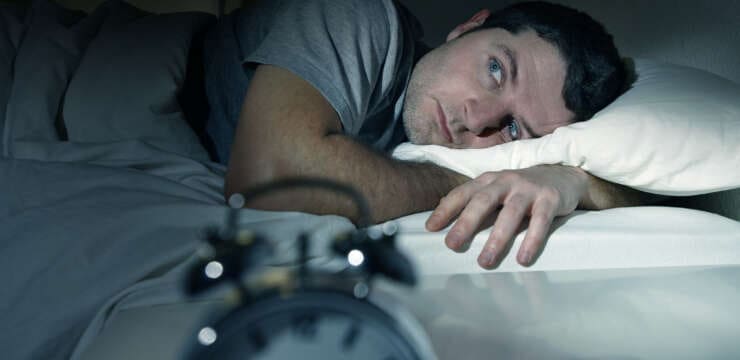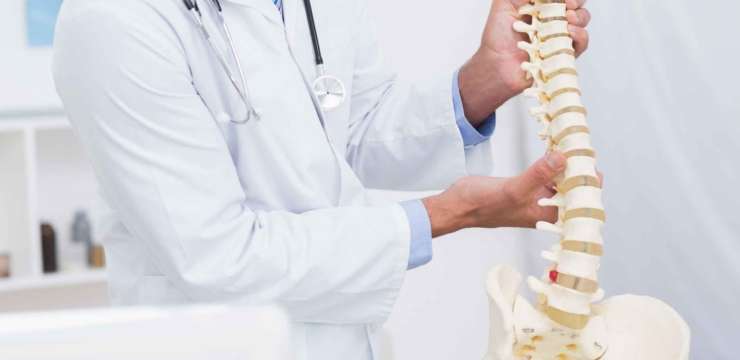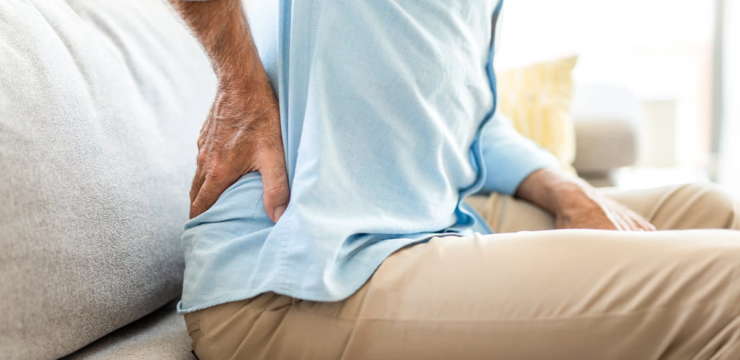
Table of Contents
Introduction
The body goes through many scenarios that can impact its entire system. From stressful situations to making sure that each organ system is working properly, the body can handle anything that life throws at it. But when there are unwanted pathogens or severe injuries that the body is going through, it can cause damage to the tissues and cells inside the body. The body has the natural ability to heal itself but when the injury is severe, it can take a bit longer on the healing process. That is where regenerative medicine comes in and helps the body recover faster. In this 2 part series, we will be taking a look at the post-procedure protocols that a person should follow after their regenerative treatment. Part 2 will discuss how inflammation can affect the body after the procedure and what anti-inflammatory food is perfect for the body. By referring patients to qualified and skilled providers that specialized in regenerative cellular therapy, we work with affiliated clinics and distributor organizations, both internationally and nationally with the services that we offer. We find that education is the key to asking valuable questions to our providers. Dr. Alex Jimenez DC provides this information as an educational service only. Disclaimer
Can my insurance cover it? Yes, in case you are uncertain here is the link to all the insurance providers we cover. If you have any questions, please call Dr. Jimenez at 915-850-0900.
What Is Regenerative Medicine?
Since the body has many ways to naturally heal itself from injury, it sometimes needs some help regenerating the damaged cells that have been sustained from severe injuries. This is where regenerative medicine comes in and helps the body out a bit more. There is some misinformation about regenerative medicine since everyone has heard the word “stem cells.” However, the proper term for it is human cellular tissue products or HCTP and this plays a huge role in regenerative medicine. Research shows that regenerative medicine is an interdisciplinary field that promotes regeneration and restoration of diseased and injured tissues and whole organs. Regenerative medicine can also help regenerate the body’s cellular structure back to its original form and help speed up the body’s healing process.
The Post-Procedure Protocol For Regenerative Medicine Treatment
In the last article, it discussed what to do prior before a regenerative treatment and the steps that should be taken before anyone is going into the procedure. But what should a person do after the procedure is done? Many specialist providers that work with HCTP, want the individual to get the most out of the treatment. Surprisingly the treatment works best when a person is eating the right foods, engaging in healthy activities, and following the instructions exactly as indicated by the medical provider. Studies show that the healing can continue to work for up to 8 months. There are 3 rules that everyone should follow to help the human cellular tissue products (HCTP) have an optimal environment for growth. By following these steps, it can help get the results that a person is hoping for.
If It Hurts, Stop
It is common to feel some pain and discomfort for 24-48 hours after the injection. A person may be numb in the areas that were treated for 4-6 hours after the procedure. But after the first 2-3 days, the soreness will start to subside and it is important to listen to the body. Since the areas are numb, many healthcare providers ask their patients to refrain from any strenuous activities like a hard workout, however, to stay as mobile as possible with light exercises like walking around frequently.
Another thing to take note of is that if there is swelling in the area that was injected is do not apply ice to the affected area and don’t take anti-inflammatory medications for at least 7 days since it can damage the injected cells or even kill them. As a substitute, a person can take Tylenol (acetaminophen) up to 4g daily or use a topical pain cream to ease the pain. As part of the normal healing process, a person may experience “Roller Coaster†syndrome, where they feel great one day and for no apparent reason the area that was treated starts to hurt again.
Don’t Cause Inflammation In Your Body
When a person injures themselves and the affected area is red and swollen, it is due to inflammation. Studies show that inflammation is a defense mechanism that is responsive to the immune system. Inflammation help removes harmful pathogens and damaged cells of the body and initiates the healing process. Remember the previous article talked about inflammation and how it is one of the biggest
causes of unwanted health conditions. The way a person eats is one of the biggest ways that can cause unwanted inflammation in the body without even a person knowing it. If a person just received the treatment, it goes to the area of the body where there is inflammation. And if they eat foods that can trigger inflammation to rise more than it should then there will be consequences as some of the healing properties from the treatment will work on fixing the problem. Following a nutritional guide that doctors recommended the anti-inflammatory diet, which is beneficial to the body as well as staying hydrated by drinking plenty of water. The closer a person is to following these guidelines the better chance of the body to recover.
Rest, Don’t Add Stress
Getting enough rest and good sleep is vital. When people are getting enough sleep, the body and the mind are recovering. When having good quality sleep, studies show that getting an adequate amount of sleep can increase the quality of life and improve mental health, plus the treatment will be doing its job and make the body feel better. However, when there is stress in the body it can be hard for the body to relax and stress is another thing that is not healthy for the body and the mind. Studies have found that sleep reactivity can cause stress exposure to disrupt sleep and cause unwanted issues that can make a person not feel 100 percent. There are four types of stress everybody commonly deals with. They are physical, emotional, nutritional, and chemical.
Physical
Many physicians want their patients to keep moving but patients need to pay attention to their body’s reactions and do not do anything that causes pain. Also, make sure to listen to their doctor’s advice
on what to do and what not to do. Pain relief may be the first thing that anyone can notice in their
recovery process. It is not an indication that a person is fully ready to get back to normal activities, however, if they overdo it, they may set back or ruin their chances of recovering.
Emotional
Since the body and mind are connected if a person has a lot of emotional stress and it can affect their health and vice versa. By trying to avoid anything that may bring the mood down emotionally, having a positive mental outlook will go a long way in the recovery process.
Nutritional
People eat a lot of empty calories. which is a food or drink that does not have a lot of nutritional value. Remember the food that a person eats is fuel for the body. By putting good fuel in, the body will run well; but if a person consumes bad food, the body will not run properly. Please eat only nutrient-dense or nutrient-rich food. There are many resources online to help give people a better understanding of what foods to choose. The body and the treatment need good fuel to get the best result possible.
Chemical
Everyone is exposed to literally tens of thousands of chemicals, toxins, and pollutants on a weekly basis. They are in the air that people breathe, the food that is eaten, and even the things people use to wash their clothes and bodies. Everything around the world is heavy in these chemicals, toxins, and pollutants. Try and lower endocrine disruptor exposure as much as possible, especially with the foods that are being eaten. By trying to eat freshly prepared organic foods whenever possible, can increase the chances of recovery.
Conclusion
All in all, these step-by-step guidelines are essential for the recovery process of regenerative treatment. By following these guidelines can help the body recover faster and provide optimal results for the body. Regenerative medicine has many beneficial properties when it comes to body health and wellness since it helps repair the cellular structure of the body. When the body is functioning properly and is healthy, a person can continue on their wellness journey and is much happier.
References
Chen, Linlin, et al. “Inflammatory Responses and Inflammation-Associated Diseases in Organs.†Oncotarget, Impact Journals LLC, 14 Dec. 2017, www.ncbi.nlm.nih.gov/pmc/articles/PMC5805548.
Choi, Dong-Woo, et al. “Association between Sleep Duration and Perceived Stress: Salaried Worker in Circumstances of High Workload.†International Journal of Environmental Research and Public Health, MDPI, 19 Apr. 2018, www.ncbi.nlm.nih.gov/pmc/articles/PMC5923838/.
Kalmbach, David A, et al. “The Impact of Stress on Sleep: Pathogenic Sleep Reactivity as a Vulnerability to Insomnia and Circadian Disorders.†Journal of Sleep Research, U.S. National Library of Medicine, Dec. 2018, www.ncbi.nlm.nih.gov/pmc/articles/PMC7045300/.
Mao, Angelo S, and David J Mooney. “Regenerative Medicine: Current Therapies and Future Directions.†Proceedings of the National Academy of Sciences of the United States of America, National Academy of Sciences, 24 Nov. 2015, www.ncbi.nlm.nih.gov/pmc/articles/PMC4664309/.
Disclaimer
Disclaimers
Professional Scope of Practice *
The information herein on "Post-Procedure Protocols For Regenerative Medicine | Part 1" is not intended to replace a one-on-one relationship with a qualified health care professional or licensed physician and is not medical advice. We encourage you to make healthcare decisions based on your research and partnership with a qualified healthcare professional.
Blog Information & Scope Discussions
Welcome to El Paso's wellness blog, where Dr. Alex Jimenez, DC, FNP-C, a board-certified Family Practice Nurse Practitioner (FNP-C) and Chiropractor (DC), presents insights on how our team is dedicated to holistic healing and personalized care. Our practice aligns with evidence-based treatment protocols inspired by integrative medicine principles, similar to those found on dralexjimenez.com, focusing on restoring health naturally for patients of all ages.
Our areas of chiropractic practice include Wellness & Nutrition, Chronic Pain, Personal Injury, Auto Accident Care, Work Injuries, Back Injury, Low Back Pain, Neck Pain, Migraine Headaches, Sports Injuries, Severe Sciatica, Scoliosis, Complex Herniated Discs, Fibromyalgia, Chronic Pain, Complex Injuries, Stress Management, Functional Medicine Treatments, and in-scope care protocols.
Our information scope is limited to chiropractic, musculoskeletal, physical medicine, wellness, contributing etiological viscerosomatic disturbances within clinical presentations, associated somato-visceral reflex clinical dynamics, subluxation complexes, sensitive health issues, and functional medicine articles, topics, and discussions.
We provide and present clinical collaboration with specialists from various disciplines. Each specialist is governed by their professional scope of practice and their jurisdiction of licensure. We use functional health & wellness protocols to treat and support care for the injuries or disorders of the musculoskeletal system.
Our videos, posts, topics, subjects, and insights cover clinical matters, issues, and topics that relate to and directly or indirectly support our clinical scope of practice.*
Our office has reasonably attempted to provide supportive citations and has identified the relevant research studies or studies supporting our posts. We provide copies of supporting research studies available to regulatory boards and the public upon request.
We understand that we cover matters that require an additional explanation of how they may assist in a particular care plan or treatment protocol; therefore, to discuss the subject matter above further, please feel free to ask Dr. Alex Jimenez, DC, APRN, FNP-BC, or contact us at 915-850-0900.
We are here to help you and your family.
Blessings
Dr. Alex Jimenez DC, MSACP, APRN, FNP-BC*, CCST, IFMCP, CFMP, ATN
email: coach@elpasofunctionalmedicine.com
Licensed as a Doctor of Chiropractic (DC) in Texas & New Mexico*
Texas DC License # TX5807
New Mexico DC License # NM-DC2182
Licensed as a Registered Nurse (RN*) in Texas & Multistate
Texas RN License # 1191402
ANCC FNP-BC: Board Certified Nurse Practitioner*
Compact Status: Multi-State License: Authorized to Practice in 40 States*
Graduate with Honors: ICHS: MSN-FNP (Family Nurse Practitioner Program)
Degree Granted. Master's in Family Practice MSN Diploma (Cum Laude)
Dr. Alex Jimenez, DC, APRN, FNP-BC*, CFMP, IFMCP, ATN, CCST
My Digital Business Card









